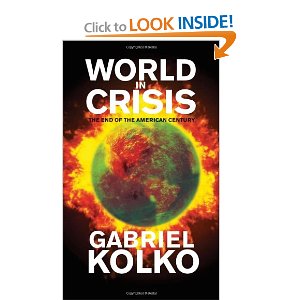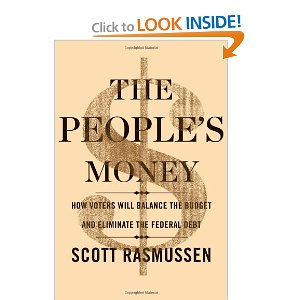
Gabriel Kolko
5.0 out of 5 stars Simplify, Simplify, Simplify,June 22, 2009<
By Tracy McLellan (Chicago) – See all my reviews
One could almost condense the whole of Kolko thought into a single sentence: “Political problems have political and social, not military solution.” He says this at least four or five times in the current volume, as he has even more often previously. A common criticism of Kolko is that he's repetitive. This doesn't speak to the fact that the deafening silence with which his work is greeted is a far harsher, and equally invalid, criticism. Kolko's alleged repetitiveness is more grasp of nuance and comprehensiveness than it is lack of imagination.
World in Crisis: the End of the American Century is an implicit rejoinder to what Kolko himself calls the lunatics in the Bush regime. It is the typically unique type of excellence in political observation I, at any rate, expect of Kolko. The essays in the current volume are a second, yet enduring draft of history reviewing the political turmoil of the last four or five years. They examine the financial crisis, US foreign policy, Israel, the current and historical US alliance system, US intelligence agencies, and other US policies. The essays have appeared previously on ZNet, […], Counterpunch, in anthologies, and elsewhere. All of them are updated for this book, because, as Kolko notes, they become obsolete almost as soon as they are published due to the accelerated trajectory of geopolitical, technological, financial, and sociological events.
Continue reading “Review (Guest): World in Crisis – The End of the American Century”








